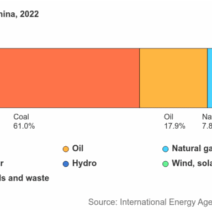In recent years, the discourse surrounding climate change has evolved dramatically, capturing the attention of individuals, communities, and nations alike. However, the question persists: why should we even care about climate change? At first glance, environmental phenomena may appear distant or abstract, but a closer examination reveals profound implications for our planet and our existence.
First and foremost, climate change poses an existential threat to biodiversity. The intricate web of life that sustains ecosystems is imperiled as rising temperatures and shifting weather patterns disrupt habitats. Species that once thrived in particular regions are increasingly unable to adapt to the rapid changes dictated by human activity, leading to heightened extinction rates. According to scientific studies, current extinction rates are estimated to be over 1,000 times higher than the natural background rate—an alarming statistic that underscores the urgency of the matter.
Moreover, biodiversity loss has cascading effects that reverberate through entire ecosystems. Each organism, no matter how small, plays a vital role in maintaining the balance of its environment. The decline in species can lead to poor pollination, reduced soil fertility, and increased vulnerability to pests and diseases. These changes can compromise food security, which is a fundamental need for human survival. A decline in biodiversity could thus mean a loss of resilience for agriculture, ultimately threatening our very sustenance.
Climate change also manifests in unprecedented weather phenomena. The frequency and intensity of storms, floods, and droughts are on the rise as global temperatures steadily increase. These extreme events carry devastating consequences for communities worldwide. Displacement of populations due to natural disasters is becoming a norm rather than an exception. Over the past decade, millions of people have been forced to migrate as their homes became uninhabitable, leading to a humanitarian crisis of immense proportions.
Furthermore, economic implications stemming from climate change present a serious concern. Natural disasters result in billions of dollars in damages each year, crippling local economies and straining national budgets. For developing countries, the burdens are especially heavy, as they often lack the infrastructure and resources to mitigate the escalating repercussions of climate change. This economic instability can drive a wedge between nations, exacerbating geopolitical tensions and hindering cooperative efforts to address shared challenges.
Public health is yet another arena profoundly impacted by climate change. As the planet warms, the spread of vector-borne diseases—such as malaria and dengue fever—becomes increasingly prevalent, placing additional strains on healthcare systems. Additionally, air quality deteriorates as industrial emissions, coupled with rising temperatures, contribute to respiratory ailments among vulnerable populations. The interconnection between climate and health cannot be overlooked; neglecting climate change is tantamount to jeopardizing health outcomes and overall human well-being.
On a more profound level, climate change compels us to reconsider our ethical stance toward nature and future generations. An undeniable truth emerges: our actions today have far-reaching effects that transcend time and space. The concept of intergenerational justice poses moral questions about our responsibility toward those who will inherit the world we leave behind. Apathy in the face of climate change is not merely an oversight; it is a breach of our duty to protect the planet for succeeding generations.
The fascination with climate change also stems from its accessibility as an issue of collective concern. It transcends cultural, political, and social divides; it is a narrative that unites humanity against a common enemy. Advocacy and activism have surged, emphasizing the power of collective action. The emergence of movements—youth-led protests, grassroots organizations, and global climate strikes—illustrates the urgency with which individuals are responding to this crisis. When communities unite to address climate change, they not only amplify their voices but also foster a sense of belonging and empowerment.
Furthermore, tackling climate change presents opportunities for innovation and economic revitalization. The transition to renewable energy sources, for instance, holds promise for job creation in the manufacturing, installation, and maintenance sectors. Wind, solar, and geothermal energies offer sustainable alternatives that can foster economic growth while simultaneously reducing carbon footprints. The vision of a clean energy future is not only feasible but also economically advantageous, proving that combating climate change can align with both ecological and economic goals.
As we collectively grapple with the implications of climate change, it is crucial to recognize the complex interdependencies between human actions and environmental outcomes. We stand at a critical juncture where the choices we make today will shape the future of our planet. The dialogue surrounding climate change must be infused with urgency and mindfulness, reflecting both the immediate threats and the long-term possibilities.
In conclusion, the question of why we should care about climate change is not merely an academic exercise; it is a call to action. From the preservation of biodiversity to the safeguarding of public health and the promotion of economic stability, the stakes are undeniably high. The enchantment with climate change lies not just in its challenges but also in its transformative potential. Our shared responsibility to the Earth and to one another compels us to engage wholeheartedly in the fight against climate change, shaping a sustainable and equitable future for all.



